- For years, people have settled illegally in national parks around Indonesia, clearing the land and farming it in the hope they will eventually be granted legal title to it.
- While the authorities’ default response has been to evict them, a new government program is taking a more collaborative approach that aims to be a win-win for both the parks and the people.
- Under the “conservation partnership” program, the settlers acknowledge that they cannot lay claim to the land and must work to restore damaged ecosystems.
- In turn, they’re allowed to allowed to remain on the land and cultivate “traditional” crops and harvest non-timber forest products, such as rattan and honey, but not allowed to grow rubber and oil palm.
BESITANG, Indonesia — Suwardi, a 51-year-old from Indonesia’s North Sumatra province, used to work as a laborer for a landlord who managed oil palm and rubber plantations in his home village of Harapan Maju, near Gunung Leuser National Park. He also cultivated a dream: to own his own farmland.
One day, about four years ago, Suwardi thought he had an opportunity to get closer to his dream. A man who claimed to control a nearby plot of land, already cleared of vegetation and ready for planting, offered to let Suwardi manage it for a fair price.
The land lay inside the national park, but Suwardi saw that as only a minor hitch. Like other protected areas in the Southeast Asian country, this one was full of squatters, and with the man’s assurances Suwardi believed that even if he operated illegally for a while, he could one day obtain title to the land.
Soon, however, Suwardi came to regret his deal with a member of what he called a “land mafia,” a common expression in Indonesia for people who fraudulently exploit gaps in the land regulation system for profit, often through collusion with public officials. After two years of hiding from forest rangers, he decided to call it quits.
“I don’t want to be illegal anymore,” Suwardi remembers telling the other encroachers who condemned him for abandoning their group.
Suwardi may have turned his back on his fellow squatters, but he never said goodbye to his farmland, located in the Besitang area of North Sumatra province. Instead, he joined a government program that allows him to manage the land under certain conditions, even if it means he’s had to let go of his dream of one day owning it.
The program, known as “conservation partnership,” seeks to reduce conflict between conservation authorities and villagers living in the vicinity of protected areas, turning them into allies in restoring damaged ecosystems and offering them economic opportunities.
Since its establishment in 2018 by the Ministry of Environment and Forestry, the program has grown to encompass nearly 177,000 hectares (440,000 acres) of land at 69 sites across the Indonesian archipelago, including some of its best-known national parks, such as Tesso Nilo in Sumatra, East Kutai on the island of Borneo, Lore Lindu on the island of Sulawesi, and Halimun Salak on Java Island, according to Wiratno, the main official overseeing the program.
“Encroachment caused by poverty, lack of agricultural land and landless farmers must be resolved not through law enforcement but through the provision of management access,” Wiratno, the environment ministry’s director-general of conservation, told Mongabay.
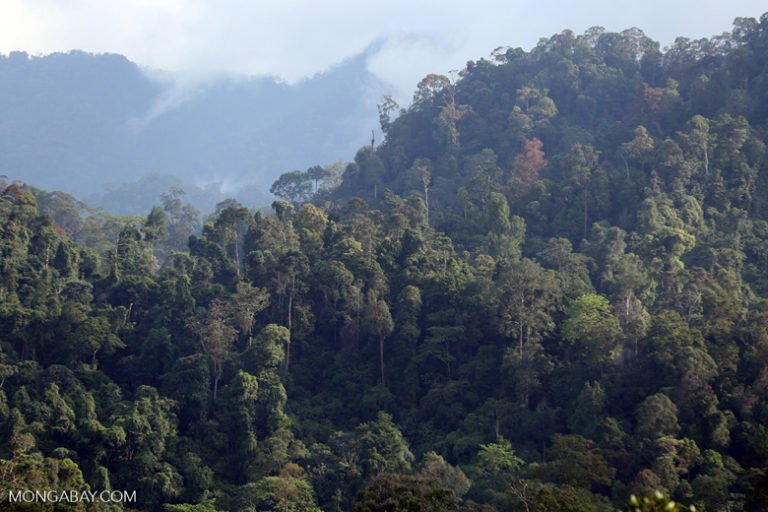
Indonesia is home to the world’s third-largest area of rainforest, but it also has one of the highest rates of forest loss since the turn of the century.
Much of that deforestation has occurred illegally, within areas the government has designated as protected. Nearly a tenth of the country’s 22.1 million hectares (54.6 million acres) of “conservation forest” had been damaged as of 2012, Wiratno wrote in a memoir published that year about his time serving as head of Gunung Leuser, which he led from 2005-2007.
The forest in some protected areas has been almost entirely destroyed. Some three-quarters of Tesso Nilo National Park, for example, has been converted into illegal oil palm farms, according to WWF.
Gunung Leuser hasn’t fallen into such dismal straits, though the park hasn’t gone unscathed either. In recent decades, Gunung Leuser, a UNESCO World Heritage Site that’s home to orangutans, elephants, tigers and other endangered species, has lost rainforest across nearly 5% of its total area, much of it converted into illegal farms, according to the park’s management agency.
Efforts to crack down on so-called land mafia practices in Besitang, where the squatters are concentrated, have met with resistance. A 2011 eviction attempt resulted in a group of squatters setting fire to the park authority’s office there, according to a 2016 report by UNESCO and Tropenbos International Indonesia, an international nonprofit.
“The case of Besitang … reflects the experience of encroachment in other conservation areas,” Wiratno told Mongabay.

While illegal attempts to control protected lands are diverse, officials in North Sumatra say that in Besitang, land traffickers have staked claims to national parkland based on the presumption that it belonged to the Langkat Sultanate during the Dutch colonial period and therefore today belongs to the sultan’s descendants.
“These so-called geran datuk claims have for a long time led to the occupation of Leuser by land grabbers,” Selamat Indarjo, the official in charge of the park’s Besitang region, told Mongabay. “The claim has no basis, but many farmers believe it.”
The current sultan of Langkat expressed a similar view during a speech at the 2018 Conservation Forest Farmers Congress held in Besitang to kick off the conservation partnership program there.
“I’ve never heard of the term �?geran datuk,’ but it’s been used to make a fool of people,” said Azwar Abdul Jalil Rahmad Shah al-Haj, the 14th sultan since the sultanate was established in 1568.
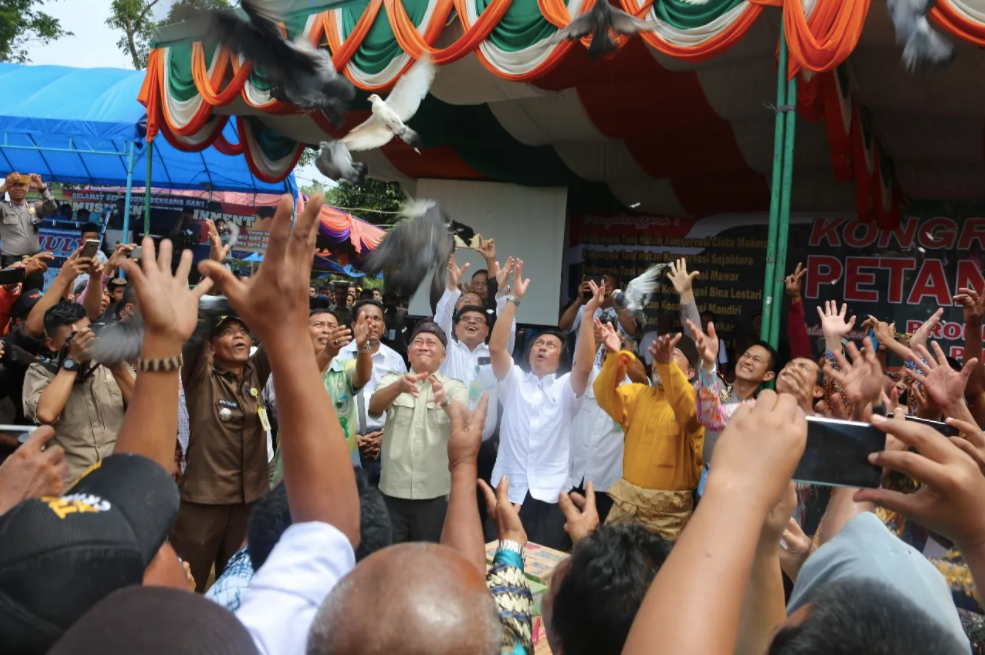
Also fueling the deforestation in Leuser, which straddles the administrative provinces of North Sumatra and Aceh, was a rebellion waged by separatists in the latter province from 1976-2005. The conflict pushed thousands of refugees into the national park, where many still remain.
At times, the refugee issue has been used as a cover for land mafia practices, according to Wiratno.
Land traffickers like those in Leuser often have connections in high places, making them exceptionally difficult to deal with. In Besitang, they typically operate by clearing forestland and then selling small plots to aspiring farmers like Suwardi.
After getting the land, Suwardi and dozens of other farmers formed a group they hoped would help them eventually obtain legal title to the land, an asset they could one day pass on to their children. They planted oil palm and rubber trees, cash crops that take several years to begin producing palm fruit and latex. Suwardi was one of the “front men” of the group, he said, which didn’t make it any easier for him to leave.
“They used to be my friends, but now they hate me,” Suwardi said. “They consider me a traitor.”
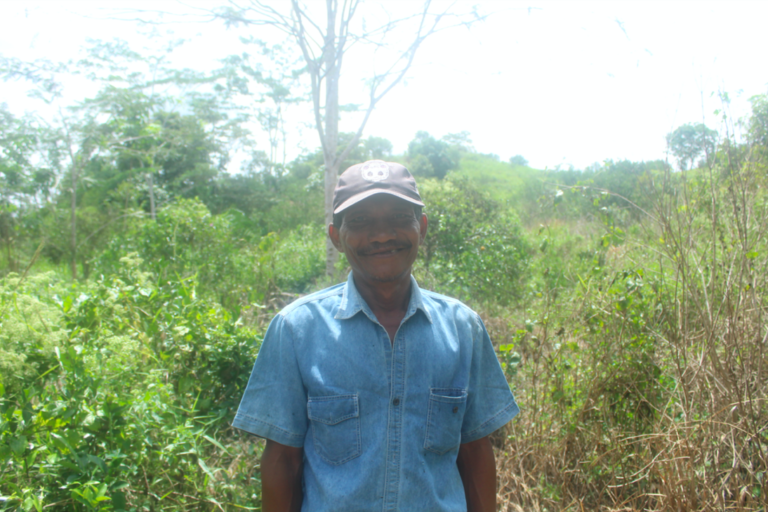
The conservation partnership program in Besitang currently spans 1,526 hectares (3,771 acres), including Suwardi’s 2-hectare (5-acre) plot.
Prior to joining the government-sanctioned “forest farmer group,” Suwardi and other squatters had to sign an agreement stating that the lands they were managing lie inside a national park and cannot be owned by individuals.
“Participating in the forest farmer group means admitting that the land they used to cultivate belongs to a national park,” said Masrizal Saraan, executive director of the Petai Foundation, an Indonesian NGO that helps run the conservation partnership program in Leuser.
Other participating NGOs are the Indonesian Forum for the Environment (Walhi), the country’s largest environmental advocacy group, and the Orangutan Information Center, based in Medan, the capital of North Sumatra province.
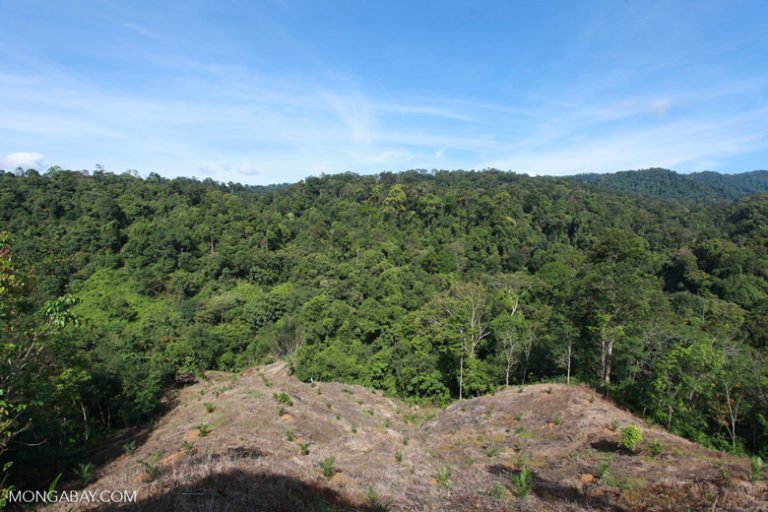
Some of the funds for the program come from Tropical Forest Conservation Action for Sumatra, a debt-for-nature swap scheme created by the U.S. and Indonesian governments. Debt-for-nature swaps allow portions of a country’s foreign debt to be forgiven in exchange for investing the money in conservation.
“If this program is oriented toward ecosystem restoration, I think it will be very good because it involves the community/farmers who have already been working in the Leuser area,” Panut Hadisiswoyo, the founder and director of the Orangutan Information Center, told Mongabay. “The approach is more humane because farmers can simultaneously receive economic opportunities by giving them access to plant secondary crops while restoring the area.”
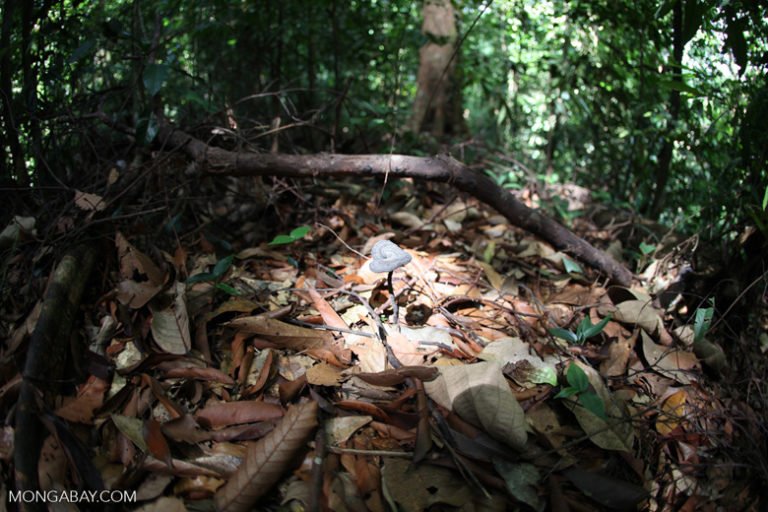
The program is also intended to help meet Indonesia’s ambitious goals of redistributing 12.7 million hectares (31.4 million acres) of land within forest areas to local communities under the government’s “social forestry” program and reforesting millions of hectares.
While participating farmers are allowed to cultivate “traditional” crops and harvest non-timber forest products, such as rattan, beeswax, honey, and mushrooms, they are not allowed to grow rubber and oil palm, and are expected to cut down any that they have planted.
Some farmers, like Joneri, a father of three who began squatting in the park in 2014, have cut down their oil palms.
“I imagine that in the years to come, if all former encroachers replace oil palm plantations with hardwood plantations, this area will recover,” he told Mongabay.
Others are more reluctant to fell what they have planted. Groups like Petai have cut down illegal oil palms in some places, but it can be expensive for a local NGO to hire the workers required to do the job.
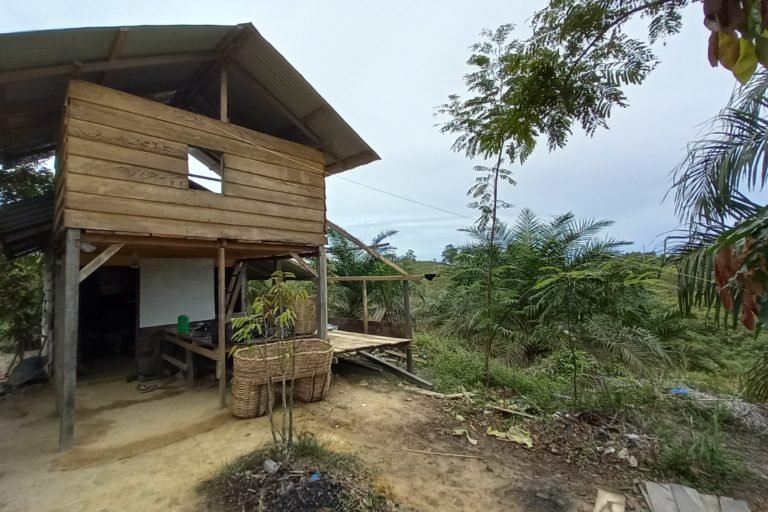
Suwardi has cut down some of his oil palms, but a few still stand on his farm. He planted them four years ago when he first started working the land, and they have recently started bearing fruit. The proceeds, he says, go a long way toward paying his children’s school fees; one of them is in university.
“If others cut theirs down, I’ll cut mine down too,” he said.
Even if Suwardi had to let go of his dream of owning the land, he said the most important thing now is being able to get the income from agriculture to support his family. He has planted nearly 1,000 forest trees such as durian, matoa and petai, and in the vicinity he can plant secondary crops, such as chilis, watermelons and oranges, to bolster the family’s income.
“I have a family and daughters who now need my support to [finish] their education,” he said. “I work to make money, not to have land.”
Banner image: A large male orangutan in the Leuser Ecosystem, by Rhett A. Butler/Mongabay.
FEEDBACK: Use this form to send a message to the author of this post. If you want to post a public comment, you can do that at the bottom of the page.












